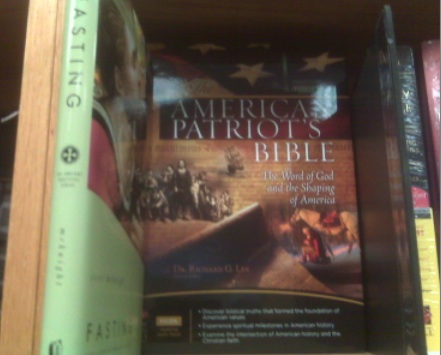 One of the fiercest debates about the new perspective, from the old perspective angle, is the issue of double imputation and whether there are “two principles” at work in the human soul: the principle of works (self-merit) and the principle faith (no self-merit).
One of the fiercest debates about the new perspective, from the old perspective angle, is the issue of double imputation and whether there are “two principles” at work in the human soul: the principle of works (self-merit) and the principle faith (no self-merit).
Tom Wright’s Justification: God’s Plan & Paul’s Vision next section (pp.210-216) takes both on through the lens of Romans 3:27-28. I’ll quote that text, quote Wright, and then ask a question:
Where, then, is boasting? It is excluded. On what principle [Greek: nomos or Torah] ? On that of observing the law? No, but on that [nomos/Torah] of faith. For we maintain that a man is justified by faith apart from observing the law.
The translation of “nomos”/law with “principle” is a much-disputed translation, and one Wright does not agree with. Wright believes the people of God keep the Torah through faith vs. those who aren’t who keep the Torah through works.
Here is Wright on double imputation, which is worked into this text by the Reformers:
“Imputed righteousness is a Reformation answer to a medieval question,
in the medieval terms which were themselves part of the problem.” More:
“The idea that what sinners need is for someone else’s ‘righteousness’
to be credited to their account simply muddles up the categories,
importing with huge irony into the equation the idea that the same
tradition worked so hard to eliminate, namely the suggestion that,
after all, ‘righteousness’ here means ‘moral virtue,’ ‘the merit
acquired from lawkeeping’ or something like that. We don’t have any of
that, said the Reformers, so we have to have someone else’s credited to
us, and ‘justification’ can’t mean ‘being made righteous,’ as though
God first pumps a little bit of moral virtue into us and then
generously regards the part as standing for the whole.”
For Wright, righteousness/justification means the status of those who have been found in favor by the judge.
Now the questions: Do you think there is any NT text that teaches double imputation? Do you think there are texts combined that teach double imputation? Is double imputation something the Reformers developed or something that can be found prior to the them? Is it a development of the NT or part of the NT?

